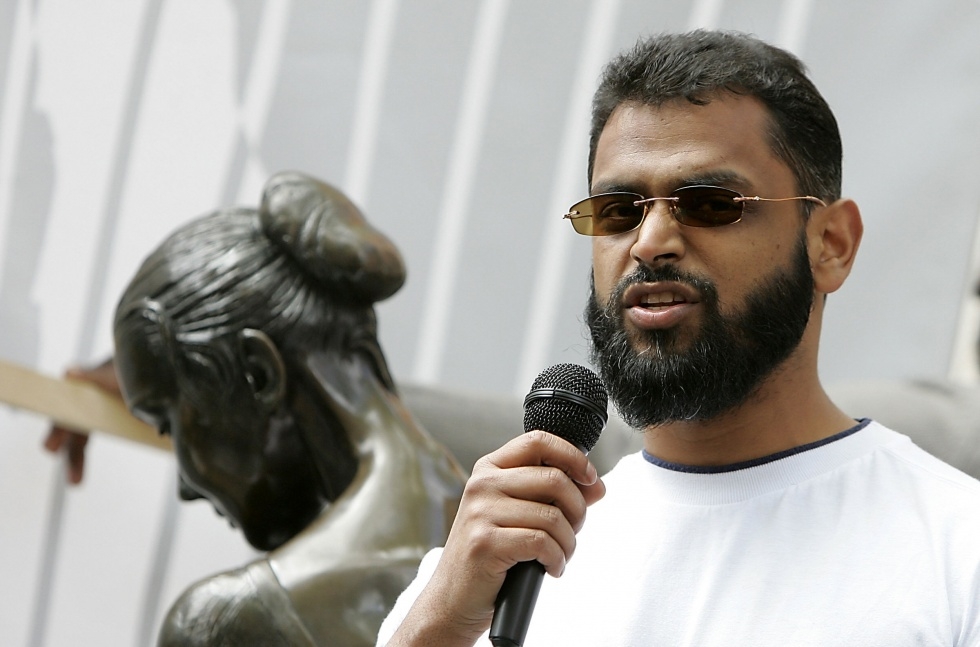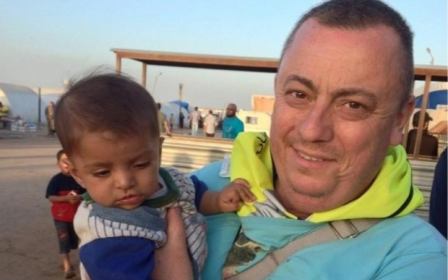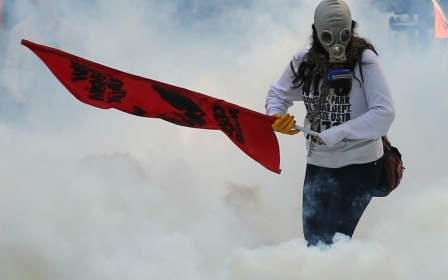Moazzam Begg says UK 'abandons' IS held hostages, urges negotiations

Former Guantanamo Bay detainee Moazzam Begg said on Monday the British government arrested him on false terrorism charges instead of accepting his offer to assist in securing the release of Briton Alan Henning who was shown to be executed by Islamic State (IS) militants on 3 October.
Begg was released from a UK prison on 1 October after spending some seven months in prison, accused of funding terrorism in Syria and providing terrorist training to militants fighting in the country’s brutal civil war. The case collapsed due to a lack of sufficient evidence.
Speaking on BBC Radio 4 early on Tuesday Begg told presenter Sarah Montague he had spoken to former Middle East minister Alastair Burt to tell him he had been approached by friends of Alan Henning in December 2013 to assist in the case.
Begg said the government responded to him by saying they “didn’t need my help”.
“I said I didn’t come here to seek your [the government’s] help. I simply came to register with you the interventions I’m going to try to make [in Henning’s case],” he said.
“A few weeks later, literally, I was arrested.”
Begg believed he could communicate to IS in language they “would understand” and that he may have known the people responsible for Henning’s detention.
“I know the people who may have been holding him,” he said, adding that he did not believe “Jihadi John” – the name given to the British accented man featured in IS execution videos – was in charge of the Henning file.
Begg said he had previously made successful interventions in securing the release of hostages in Syria, on a visit to the war torn country prior to the emergence of IS, but that the British government had failed to consider his ability to facilitate the release of detainees.
In what was a fraught interview Montague probed Begg repeatedly on whether he had any sympathy for the aims of IS, which he responded to by saying he has long since opposed the group.
“I was the first voice, before Islamic State was set up, to say these people will start committing all sorts of atrocities in the name of Islam, in the name of jihad and so forth. And we from within our communities, we need to start to challenge this. The problem is instead of trying to look at my views what the government did was to arrest me and to keep me as a high security prisoner,” he said.
Begg questioned the effectiveness of the British government’s policy in refusing to negotiate with IS in hostage situations.
“What does Britain do? Britain says let’s abandon our people, let them die, to hell with it and try to look tough and see our people executed, one after another.”
“I’ve advocated for negotiations with the Taliban, al-Qaeda, and in my view they [the British government] will have to negotiate with IS at some point.”
Prior to Begg’s interview on Tuesday morning the parents of executed American journalist James Foley told Radio 4 the US and UK policy of not paying ransom or negotiating with IS was “basically condemning our own citizens” and denying them “the protection of their government”.
British Prime Minister David Cameron responded to Begg by appealing for him to reveal any information he has about the people responsible for detaining British citizens in Syria.
“We are very happy to work with anybody,” the prime minister told BBC’s North West Tonight. “My understanding is that Moazzam Begg did make some appeals, sadly, as we know, those appeals fell on deaf ears. These people in Syria are absolutely brutal and really will stoop to any depths and do the most dreadful and ghastly things, and that is what happened.”
“But if Moazzam Begg has information to provide about who these people are he should provide it.”
CAGE, the UK-based advocacy group where Begg is the outreach director, replied with questions to Cameron’s comments in a statement on Tuesday afternoon.
“Why did the government prevent Mr. Begg from issuing a meaningful audio-visual appeals in the case of Mr. Henning when his life was most at risk? Why is it that instead of constructive dialogue, a decision was made at the highest levels of government that directly led to Moazzam Begg’s arrest and detention?”
“As with the case of Alan Henning and other hostages, CAGE calls for dialogue in resolving conflict. For there to be a lasting solution, CAGE believes that there cannot be any compromise of the principles of due process and the rule of law.”
Alan Henning’s brother Reg has appealed for Begg to offer any help he can to the remaining hostages held by IS.
“If possible I would have liked anyone to have saved Alan’s life, regardless of their history or background,” he told the BBC. “If Moazzam Begg believes he could have saved my brother’s life I would ask him to make the same efforts to save the lives of all hostages in Syria including John Cantlie and Peter Kassig.”
Middle East Eye propose une couverture et une analyse indépendantes et incomparables du Moyen-Orient, de l’Afrique du Nord et d’autres régions du monde. Pour en savoir plus sur la reprise de ce contenu et les frais qui s’appliquent, veuillez remplir ce formulaire [en anglais]. Pour en savoir plus sur MEE, cliquez ici [en anglais].




